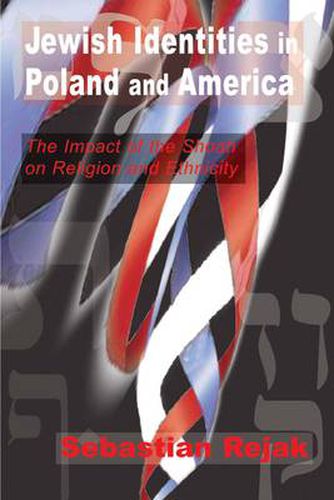Readings Newsletter
Become a Readings Member to make your shopping experience even easier.
Sign in or sign up for free!
You’re not far away from qualifying for FREE standard shipping within Australia
You’ve qualified for FREE standard shipping within Australia
The cart is loading…






Jewish Identities in Poland and America sheds new light on the impact of the Holocaust upon two distinct, yet inter-related, Jewish diasporas. It seeks to explore how the awareness of the Shoah has affected the concepts of Judaism and Jewishness. The book demonstrates how the perception - and memory - of the Holocaust has been appropriated by Jews in Poland and America and how it functions as a group identity and identification. It explores ‘the Jewish way’ of coping with the Shoah, and whether there is any one typical Jewish way. The book demonstrates, too, how being Jewish, or belonging to a specific ethnic religion (to some: ir-religion), differs from the social experiences of many other groups; how the revival of Jewish community spirit accompanied by a withdrawal from the world of traditional biblical faith has led to the emergence of a new social paradigm: belonging without believing. Has Holocaust memory and imagery had its share in this phenomenon? Has it brought many to atheism? Do American Jews share the same experience with Polish Jews in this respect?
$9.00 standard shipping within Australia
FREE standard shipping within Australia for orders over $100.00
Express & International shipping calculated at checkout
Jewish Identities in Poland and America sheds new light on the impact of the Holocaust upon two distinct, yet inter-related, Jewish diasporas. It seeks to explore how the awareness of the Shoah has affected the concepts of Judaism and Jewishness. The book demonstrates how the perception - and memory - of the Holocaust has been appropriated by Jews in Poland and America and how it functions as a group identity and identification. It explores ‘the Jewish way’ of coping with the Shoah, and whether there is any one typical Jewish way. The book demonstrates, too, how being Jewish, or belonging to a specific ethnic religion (to some: ir-religion), differs from the social experiences of many other groups; how the revival of Jewish community spirit accompanied by a withdrawal from the world of traditional biblical faith has led to the emergence of a new social paradigm: belonging without believing. Has Holocaust memory and imagery had its share in this phenomenon? Has it brought many to atheism? Do American Jews share the same experience with Polish Jews in this respect?